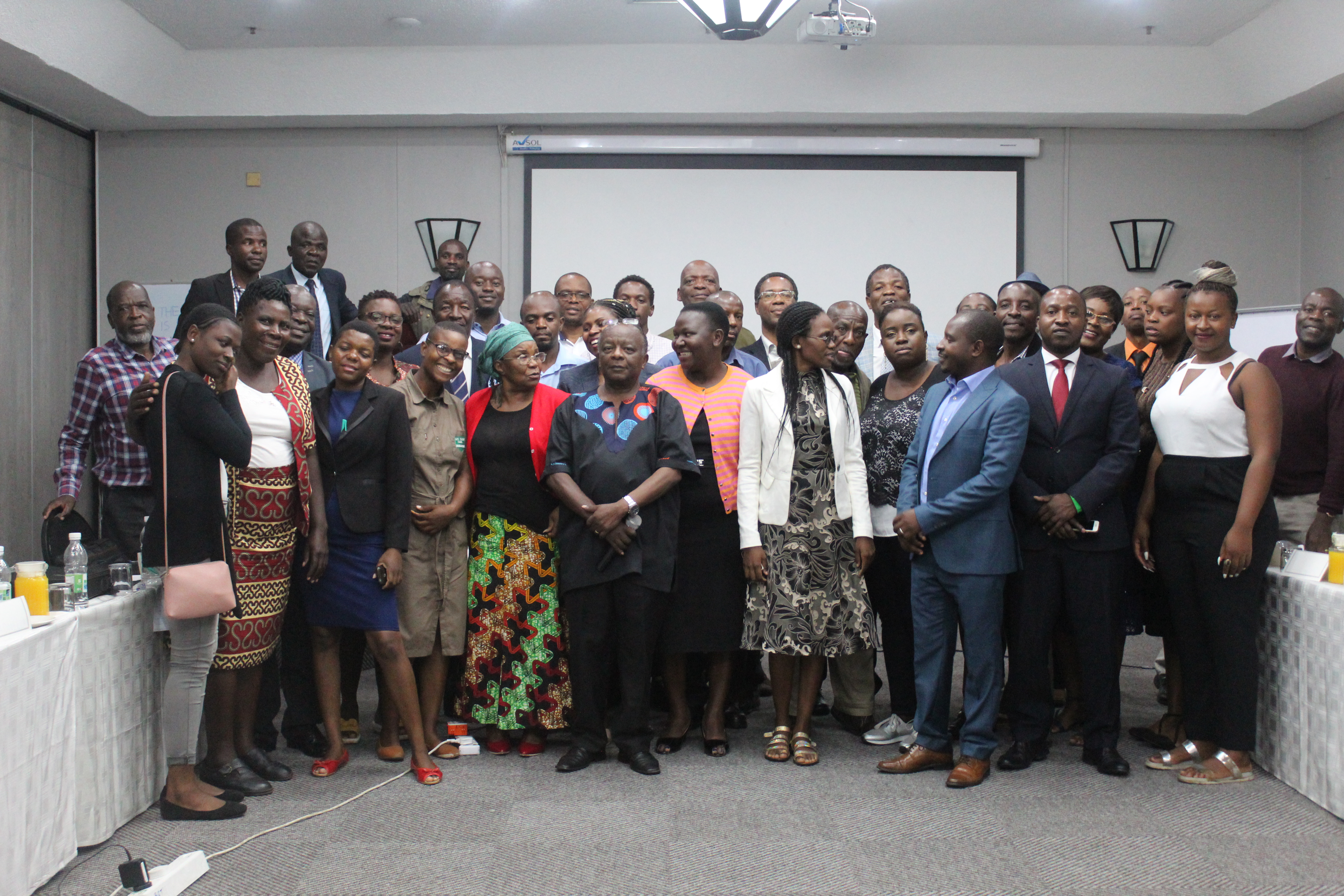By Joyce Mukucha and Anyway Yotamu
Considering that 70 percent of the population in Africa is constituted by small-holder farmers, Oxfam in conjunction with the Food, Agriculture and Natural Resources Policy Analysis Network (FANRPAN) is working tirelessly to create an enabling environment to transform agriculture markets for the small holder farming households.
The main thrust is aimed at securing livelihoods to help small-holder farmers, especially women and youths in program regions, to have the capacity to manage risks and to achieve food security.
Speaking during a Zimbabwe National Validation Workshop in Harare on the 26th of February 2020, the Southern Africa Agricultural Markets Person for Oxfam, Kudakwashe Chirigo said smallholder farmers particularly women were facing challenges in as much as reaching wider market is concerned despite the fact that they play a critical role in making the produce. Thus there was need to link them to value chains local, regional and International markets.
“Oxfam tries to build lasting solutions to global poverty and injustice. We work together with allies around the world to change the policies and practices that perpetuate human suffering. In line with this, there is need to address these challenges by linking smallholder farmers to value chains, connecting rural communities to regional markets and policy frameworks. There is need to come up with strategies which can strengthen the role of smallholder farmers especially women,”he said.
The Agricultural Research Council, Chief Executive Officer, Dr Isiah Mharapara who is also the Node Coordinator for FANRPAN indicated that issues related to food and agriculture cannot be attributed to one group. Therefore, his organisation was working with many stakeholders to ensure diverse views.
“We are working with different stakeholders such as researchers, Government, women organisations among others as well as other countries focusing on policy research, analysis and advocacy to ensure that a unified voice is created to address challenges. We are also working on a project to create an enabling environment for the smallholder farmers, identifying gaps and problems especially for women,” he said.
He added that they were also focusing on creating linkages and partnerships between government and civil society; building the capacity for policy analysis and policy dialogue in Africa; as well as supporting demand-driven policy research and analysis.
FANRPAN projects officer, Dr Njonganhle Nyoni outlined that in the previous projects, challenges were encountered due to a top down approach that had been applied and the needs which required attention were not clearly aligned.
“The important groups were not included in phase 1. The target was Zimbabwe, Malawi, Mozambique and Zambia to understand challenges being faced and overall, we figured out that there is low adoption of technology which brings high yield. In phase 2, there is need to use a bottom-top approach and increase access to information, strengthen trade practices and above all creating a conducive environment,” said Dr Nyoni.
He added that there was need to develop appropriate systems to track production trends in terms of supplier volumes.
The cornerstone of FANRPAN’s distinctive approach to innovation and learning for policy and capacity development at regional and national levels includes the following promotion of the development of appropriate food and agricultural policies in order to fight hunger and food insecurity and to reduce poverty; enhancing of action cycle of food security in Africa; promotion of sustainable agricultural development in Africa.
In light with the recently launched African Continental Free Trade Area (AfCFTA), the Chief Executive Officer, Knowledge Transfer Africa, Charles Dhewa emphasised that it was of paramount importance to have market surveys, research, particularly for exports, as well as ensuring that information and Communications Technology (ICTs) are used to increase access to information to small holder farmers.
“In terms of (ICTs), there has not been investment to support information brokers and up to now, it remains a challenge to farmers. Mobile applications should not be a one-way street but should be rather be useful for farmers to interact and have fruitful dialogues. ICT is likely to address issues that have been inhibiting smallholder farmers to thrive. ICTs are yet to consolidate and share timely information with producers especially women and youth. More importantly, small holder farmers are yet to benefit from the financial inclusion role of ICTs.
“In addition, contract farming is also significant and contributes to agricultural development in Zimbabwe and it opens up guaranteed and visible markets. Transforming Zimbabwean agriculture in favour of smallholder farmers requires high levels of organisation through reliable market -driven institutions like commodity exchange,” he said.
Aggregation, he added was one of the option which need to be used in establishing rural aggregation centres linked with ICTs to aggregate as farmers they register with organisations such as Agritex.
Sharing policy recommendations, stakeholders suggested that there was need to capacitate farmers so as produce efficiently.
“In as much as Non-Governmental Organisations and other stakeholders want to help us with transformational education and how we can reach the market as smallholder farmers, they should capacitate us as well as ensure that a bottom top approach is used. In that way, we can operate with one voice and we can grow,” said Letty Ndlovu, a Matebeleland based farmer.
Other participants stressed that when the private sector engages small holder farmers, policies should be in place to ensure that farmers operate sustainably and profitably. They mentioned that there was need to create an enabling environment for smallholder farmers so that they thrive.
The validation workshop was attended by various farmers from different areas which include Bulawayo,Bindura, Nyabira and Masvingo among others.






